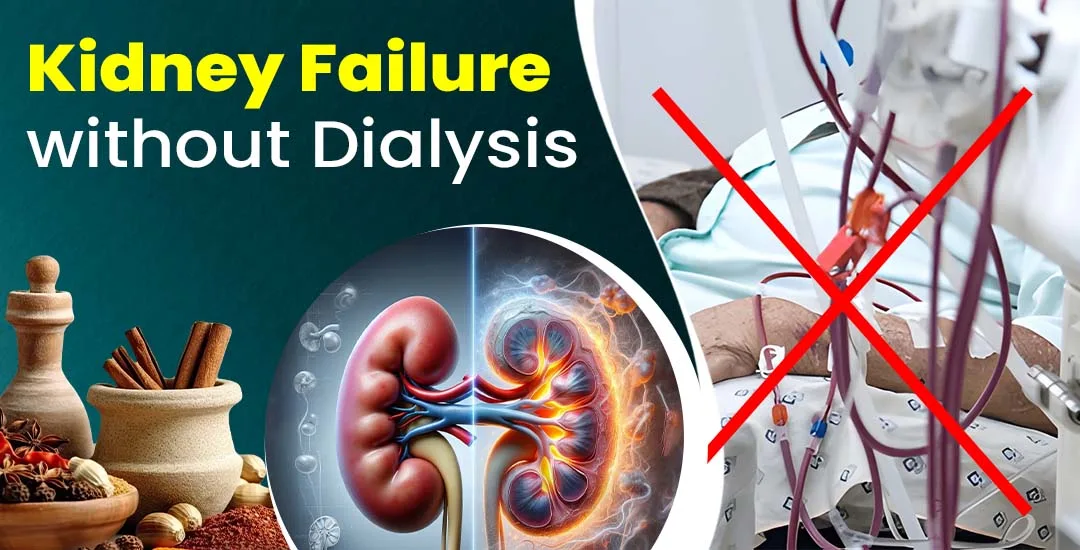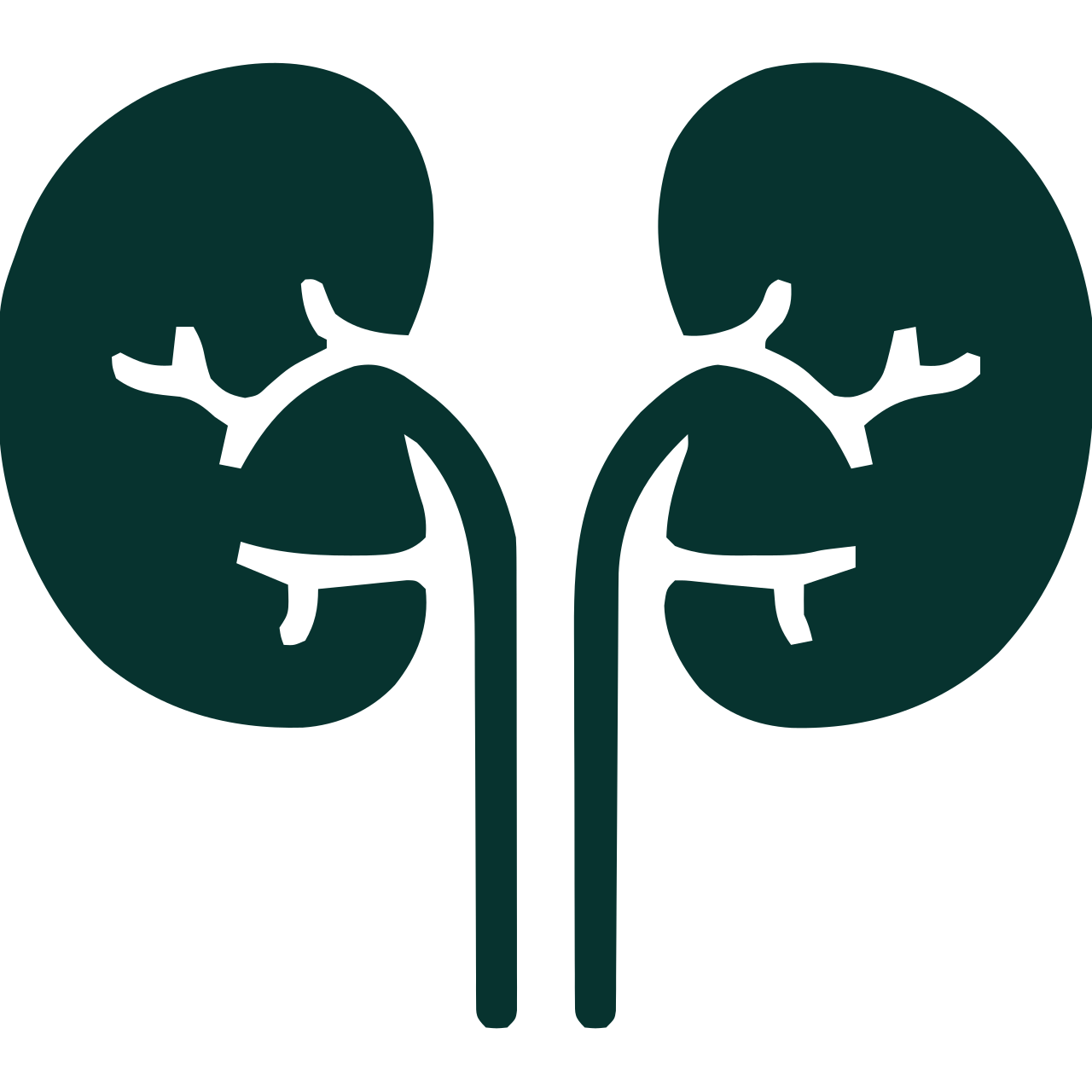
What’s happening inside the kidneys?
Your kidneys are like the behind-the-scenes filtration and balancing team of your body. They remove waste, balance fluids and salts, regulate pressure, and generally keep you feeling… well, you. When they start losing ground, due to things like high blood pressure, diabetes, or other causes, they don’t just say “sorry, I quit.” Instead, they slowly lose the capacity to filter and balance. At advanced stages, you might hear “kidney failure,” which essentially means the kidneys’ filtering job has dropped to a level where your body struggles to keep up.
Now, does that mean the kidneys will bounce back to full strength like nothing happened? Usually not. But here’s the hopeful bit: you can slow things down, support your kidneys, improve how you feel, and possibly delay or avoid dialysis for a time; if you catch things early and make some changes.
Why people dread dialysis (and totally understandable)
Let’s be honest: dialysis is a life-saving treatment, no doubt. But it also comes with a pretty heavy lifestyle footprint. Regular sessions hooked to a machine, dietary restrictions, fluid monitoring, and the sense of “my kidneys aren’t doing their job, so I’m tied to this schedule.” That can feel like losing some of your freedom.
For some patients, especially older adults with other health issues, the benefits of dialysis are weighed down by the burdens. The question naturally arises: Is there a third option? A way to manage without jumping straight into “dialysis for life”? The good news: yes, there are alternatives. The catch: they depend on you, your condition, and your timing.
What is Kidney Disease Treatment Without Dialysis?
Let’s clarify: when I say “treatment without dialysis”, I’m not saying “dialysis will never be needed”. Rather: “We’ll aim to manage your kidney disease so well that dialysis is delayed, reduced, or possibly avoided for the moment.” Think of it like saying: “My car’s engine is showing warning lights. I’ll do all I can (oil change, filters, gentle driving) to extend its life; and maybe avoid a full overhaul for now.”
Here are some of the tools in that toolbox:
-
Medical/conservative management: Under this approach, you work with your nephrologist (kidney-specialist) to monitor kidney function, manage blood pressure and blood sugar, treat symptoms (swelling, fatigue), avoid medications that stress the kidneys, regulate fluid intake, moderate protein, sodium, potassium, phosphorus intake. All aimed at slowing the decline and maintaining quality of life.
- Lifestyle & diet upgrade: Big one. If your kidneys are doing more of the workload, you can lighten their load. That means managing your diet (less salt, moderate protein, lean foods, appropriate hydration), staying active, controlling blood pressure, avoiding smoking, and keeping weight in check.
- Alternative/adjunct therapies: This is where Ayurveda can step in (if you’re comfortable and your doctor approves). Herbal support, detoxification, lifestyle routines aimed at reducing “toxin load” and supporting body systems; not magic, but a helpful partner.
- Transplant: If suitable, a kidney transplant gives you an alternative to dialysis, but it’s a different conversation with surgery, immunosuppressants, donor matching, etc. For now, think of it as a “maybe option”.
Exploring Ayurveda as a Kidney Treatment Without Dialysis
If you’re reading this blog (and I remember you are), you have an interest in Ayurveda. Great. Here’s how it can contribute:
- In Ayurveda, the urinary and filtration systems (called “mutravaha srotas”), the perfection of body fluid flow, and waste removal systems, when blocked or impeded, are symptomatic in consideration of swelling, fluid accumulation (edema), and fatigue.
- Ayurvedic treatments focus on balancing the doshas: Vata, Pitta, and Kapha, eliminating ama (toxins)- even if the treatment does not restore balance, clear toxins, or strengthen the systems, it clarifies symptoms. Some herbs that support kidney health include Punarnava, Gokshura, and Varun.
- It is about more than herbs; it is about your lifestyle. Ayurvedic guidelines often include easy detox routines, diet recommendations based on your constitution or prakriti, hydration, and stress reduction methods. All these recommendations promote a lighter burden across the body’s systems, including the kidneys.
Important caveat: Ayurveda is complementary; it doesn’t replace your nephrologist’s care. Always coordinate. Your kidneys are still the same organs the doctors measure; the numbers still matter.
How to decide whether “no-dialysis (for now)” is in your future?
Let’s pull up our boots and talk real talk. Here are some checkpoints:
- How far along is your kidney disease?
- What caused it and how controllable is that cause?
- Overall health and other conditions
- Your lifestyle, commitment & mindset
- Your life goals
- Backup plan in place
Conclusion
Here’s the bottom line: Facing kidney disease doesn’t mean you’re instantly locked into dialysis, unless that’s the best path for you. You’ve got options and can explore Ayurveda and natural treatments as a potential kidney treatment without dialysis. With smart medical care, good lifestyle and diet choices, and if you like, Ayurvedic support, you can aim for a life where your kidneys are supported, your spirit stays lifted, and your day-to-day still feels like your life.
Whether you end up on dialysis down the road or manage without it for a long while, what matters most is that you’re informed, engaged, and empowered. Your kidneys might not be perfect, but you are still you, living, laughing, and doing the things you care about. And yes, maybe giving your kidneys a tiny “thanks for hanging in there” now and then (they might not hear you, but they’ll appreciate the sentiment).





















